News & Media
Reimagining African identity, culture, history and philosophy
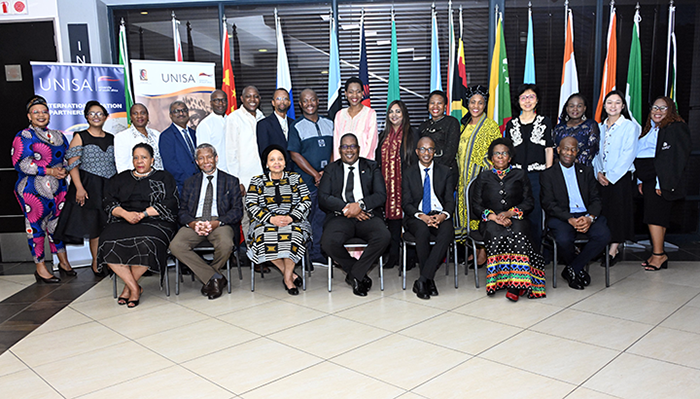
Dignitaries, distinguished guests and Unisa management
On a rainy Friday evening, on 7 November 2025, the Kgorong Building at Unisa’s Muckleneuk Campus glistened under the downpour as Africa’s first Nobel Peace Laureate was celebrated with the seventh Chief Albert Luthuli Research Chair Founders’ Lecture.
Hosted by Unisa’s Chief Albert Luthuli Research Chair in collaboration with the Luthuli Museum Council, the lecture was themed "Reclaiming African Languages: Identity, Knowledge, and Educational Transformation". The lecture is held annually to honour Chief Luthuli, who was awarded the 1960 Nobel Peace Prize for advocating non-violent resistance to racial discrimination.
Reviving indigenous tongues
Welcoming attendees, on behalf of Unisa’s Principal and Vice-Chancellor, Prof Puleng LenkaBula, the acting Vice-Principal of Research, Postgraduate Studies, Innovation and Commercialisation, Prof Mpho Ngoepe, elucidated the importance of reclaiming indigenous languages, weaving the university’s decolonial journey into the tapestry of language and memory aligned to Luthuli’s vision and legacy.
According to Ngoepe, the erosion of African languages through colonial imposition imperils the transmission of cultural memory and the continuity of African epistemologies. "The colonial legacy," he noted, "extends far beyond land and labour; it penetrates consciousness, classrooms and vocabularies. The continued dominance of colonial languages in African education systems represents not just a historical continuity but a structural constraint; one that limits how we understand ourselves, how we construct meaning, and how we imagine the world."
Ngoepe stated that it was important to claim African languages and identities that connect indigenous people to their cultural heritage, and also empower future generations. "Our languages are not merely instruments of speech; they are the arteries through which our cultures flow, our histories breathe, and our identities are formed," he said.
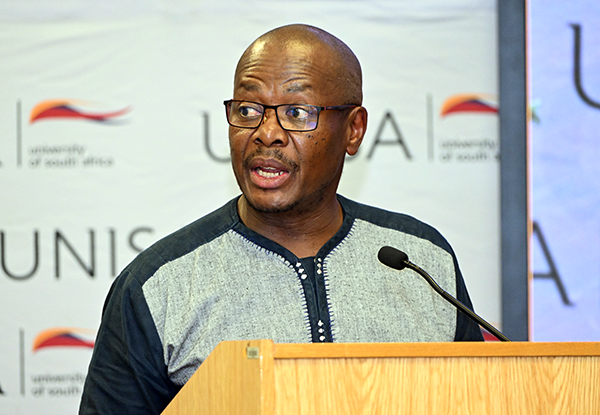
Sandile Luthuli
Linguistic empowerment transforms education
One of the elements Ngoepe gave attention to was the transformation brought about by reclaiming African languages to reimagine education. Drawing from research, he noted that it has been proven that mother-tongue instruction, mainly in early schooling, enhances learning outcomes, improves comprehension and fosters deeper critical engagement. "Children enter the world of knowledge not as outsiders but inheritors when they learn in their mother tongues," he said.
It is within this ideology that Ngoepe urged universities to transform education in a way that embeds African languages in the curriculum, from primary education to tertiary education. He further said it requires high-quality textbooks, teacher training, linguistic research and terminological innovation capable of expressing complex ideas in African idioms.
In conclusion, Ngoepe stated that reclaiming African languages is about reclaiming cognitive, cultural and creative freedom, restoring Africa’s own voice, and engaging the world on equal terms.
Sandile Luthuli, grandson of Chief Albert Luthuli, referenced the recent Pietermaritzburg High Court proceedings on the original findings regarding the cause of his grandfather’s death, which he believes was orchestrated. Commenting on the lecture’s theme, he said: "One can only imagine the broader reach this judgment could have had, had it been delivered in one of our indigenous languages, particularly isiZulu, which is Chief Luthuli’s language."
Africa’s traditions: identity and naming
Incumbent of Unisa’s Chief Albert Luthuli Research Chair, Prof Puleng Segalo, explored the interrelatedness of the naming of children and African convictions.
Segalo reminded the audience of Luthuli’s other name, Mvumbi, which means "rain", and thanked attendees for braving the inclement weather to participate in critical conversations centred around important themes, such as African languages.
Segalo said that Luthuli understood that true freedom extends beyond political liberation to encompass cultural and linguistic sovereignty. "His advocacy for non-violence was rooted in African communal values and Ubuntu philosophy, concepts that find their fullest expression in indigenous languages," she continued. "We are not just named for the sake of names; our names have meanings; hence, African languages are integral to our identity. Our naming is also integral to our cosmology."
Citing historian Prof Kwesi Prah, Segalo said, "No society can develop on a borrowed language. Linguistic dependency translates to intellectual dependency. When the languages of scholarship, technology and policy remain colonial, knowledge itself becomes a foreign project."
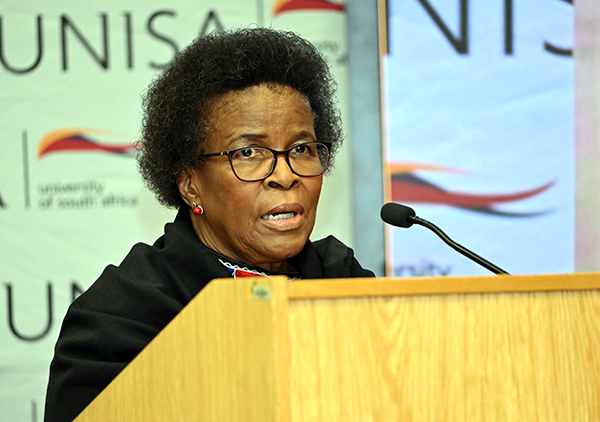
Ambassador Thenjiwe Mtintso
"Towards the Africa we want"
Delivering the lecture, Ambassador Thenjiwe Mtintso, South African anti-apartheid activist and politician, spoke on Luthuli's humanism and the ethics of language. Mtintso described Luthuli as a man whose moral clarity and commitment to justice continue to be the guiding torch lighting our steps towards the Africa we want.
She said, "Inkosi Luthuli came into politics through education. As a trained teacher and school principal, he experienced daily how language carries identity and meaning". Mtintso said any system that denies people the full dignity of their language and culture also denies their humanity. "African languages," she said, "are living archives of philosophy, custom, culture, knowledge, law, spirituality, and humour."
Mtintso said that Luthuli strongly believed that schools should cultivate personhood, responsibility and competence, and that this would be possible when learners can think, reason and create in the languages of their deepest understanding. "Luthuli's principles advanced beyond tokenism, recognising African languages as official languages," she said, commenting on how African education was made inferior to white education. "English and Afrikaans were recognised as languages of power and privilege," she explained.
Reflections on culture, language and identity
Continuing her address, Mtintso emphasised that the cultural heritage of indigenous people must be a daily lived experience. "We must recognise that our culture and language are neither static nor stagnant," she said. "I strongly believe that they must progress to meet today's realities while casting a light into the future. The progression of our languages must flow into the river and eventually conquer the oceans."
According to Mtintso, language is not just a tool for communication, but the repository of our soul, the mirror of our identity, and the carrier of our histories. "Not speaking one’s own language," she added, "is a unique loss of cultural knowledge. Even though colonialism taught us that our languages were inferior, our tongues were not for science, law and governance. Our languages invoke ancestors, the cosmos and philosophies." She also spoke at length on Agenda 2063’s aspiration number 5, epistemic violence, and black consciousness. "Reclaiming African languages is not nostalgic, it is revolutionary," she said
Following the keynote address by Mtintso, who was also celebrating her 75th birthday, respondents Prof Daniel Matjila, from Unisa’s Department of African Languages, and Khumo Feni, from North-West University, covered the themes discussed in the lecture.
The lecture was a resounding success, graced by, among others, Panyaza Lesufi, Premier of Gauteng, and Advocate Nakedi Ribane, a veteran actress who has spoken boldly against injustice, inequality and unfairness in the arts.
Chairperson of the Luthuli Museum Council, Advocate Charlie Naidoo, concluded the lecture with a vote of thanks.
Watch the full lecture
* By Lesego Chiloane, Journalist, Department of Institutional Advancement
Publish date: 2025-11-12 00:00:00.0


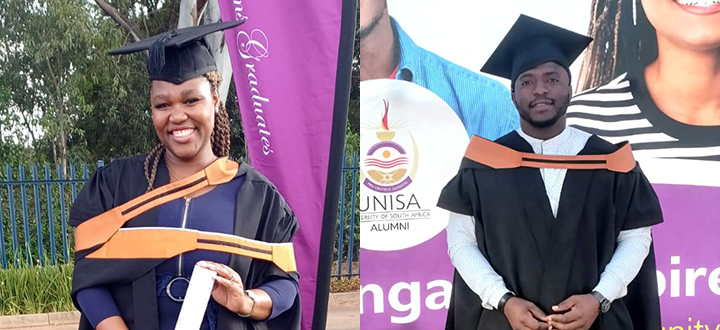 Matrimonial magnificence as husband and wife graduate at Unisa
Matrimonial magnificence as husband and wife graduate at Unisa
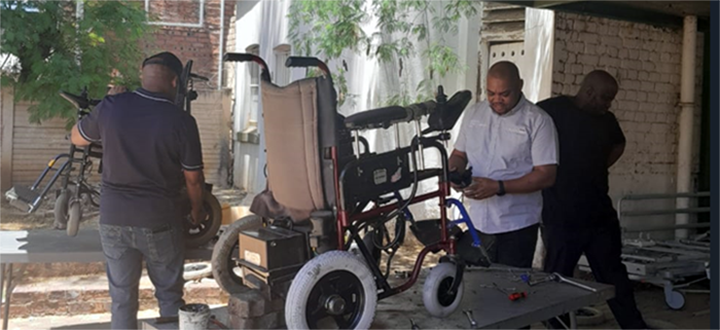 Unisa engineering team restores mobility and dignity
Unisa engineering team restores mobility and dignity
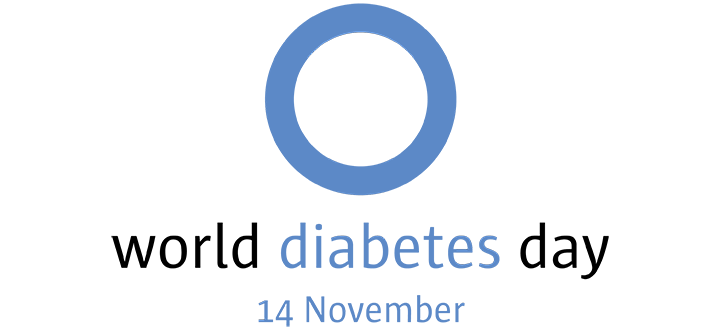 Unisa leads research into South Africa's number one killer
Unisa leads research into South Africa's number one killer
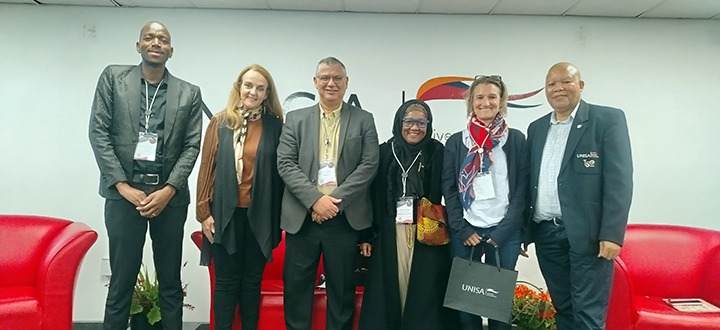 Unisa symposium highlights the need to rethink education for the AI era
Unisa symposium highlights the need to rethink education for the AI era
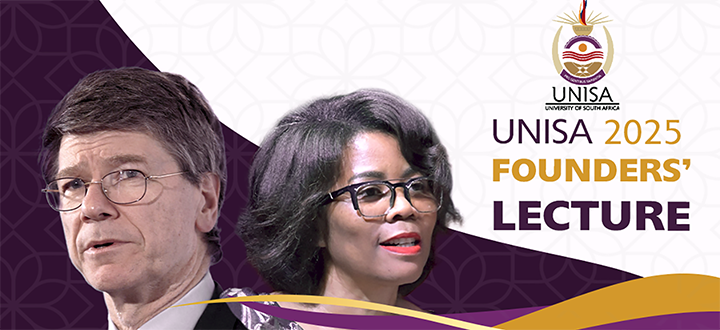 Renowned economist and global leader in sustainable development to speak at Unisa
Renowned economist and global leader in sustainable development to speak at Unisa